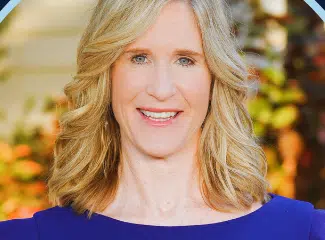Why the Farm Bill matters to all of us.

Every five years, Congress reauthorizes a largely unnoticed piece of legislation dubbed the Farm Bill.
But this important law sets federal budget levels for nutrition programs ranging from SNAP – commonly called Food Stamps – and food pantries, many of them operated by parishes. Additionally, this wide-ranging bill sets agricultural policy from farmers’ insurance to commodity support programs to conservation programs in rural communities to forestry regulation.
This bill even sets guidelines for international aid and development assistance.
Last month, an eclectic group met at Guardian Angels Parish in Mount Washington for a program focusing on the Farm Bill and the vital components it funds and supports. “We anticipate sending messages and letters to the Congressmen in our area to advocate for the principles of the Catholic bishops,” said Tony Stieritz, director of the Archdiocese’s Social Action Office. Congress is supposed to act on the bill this year.
Stieritz helped coordinate the program sponsored by his office, Catholic Rural Life of St. Martin Deanery representing rural areas east of Cincinnati, St. Vincent de Paul, and the OK River Valley Chapter of the Ohio Ecological Food and Farm Association.
“There really is quite a bit that goes into this,” Stieritz said. “The meeting was an educational forum to expose people to all of the important things that are inside the Farm Bill. It was an orientation of our principles as they relate to all of the issues that come under the Farm Bill in relation to Catholic teaching. It was be a call to action in general to provide and make sure the farm bill continues to provide the necessary nutritional assistance to the poor and vulnerable who need help making ends meet and who understandably rely on this safety net.
“Secondly,” Stieritz said, the bill “will help craft and agricultural policy that especially supports small and middle size Ohio family farmers. The United States Conference of Catholic bishops has taken the position that agricultural programs should support small and middle sized farmers over the large corporate farmers that might not generally need subsidies.
“This was a group of folks energized about the Farm Bill. It is a unique piece of legislation in the sense that it brought urban constituents and rural constituents all under the same piece of legislation. We had people from inner-city Cincinnati and some rural Brown County (residents) come to the same event. We very much want to see and create opportunities in this especially divided and polarized culture. We can bring different constituents together around a common set of principles.”
“One (attendee) might grow food and the other might eat food, but we are all being nourished by the gifts from God’s earth and we want to share that together,” Stieritz said.
Stieritz said there were four panelists they were:
Kenny Ring, a conventional farmer who grows corn and soybeans near Georgetown who sees the farm bill from the perspective of how it will impact traditional crops; Julie Kline who comes from organic, ecological food and farming who has a perspective about how to farm bill promote more diverse agriculture and organic support for organic agriculture; a representative from St. Vincent de Paul who knows the importance of support to food banks and the SNAP program, and a woman who receives the benefits herself as a low income person trying to advance in life and who wanted to show how important it is for her to have this safety net.
Julie Kline, of Brown County, was a member of the event planning committee representing a local chapter of the Ohio Ecological Food and Farm Association — a statewide organization promoting sustainability in agriculture for small farmers and gardeners.
As an example, Kline said, “there are a number of programs set to expire that we want to make sure get renewed.
“There are a lot of programs supportive of small farmers and organic growers that we would like to see remain in the new bill. But, they might be threatened. There are about 10 different programs. One would be the National Organic Certification Cost Share Program. It provides money to organic farmers who want to be certified under a national certification program. It ensures the public they are doing things the proper way and it’s fairly costly. There’s a cost share program to help out those farmers.
“A couple others would be the Beginning Farmer and Rancher Development Program for someone who wants to get into farming. I believe it provides low-cost loans for people to get started. Then there’s a Conservation Reserve Program that gives assistance to farmers who want to put their land into conservation…. Instead of croplands, these are wetlands or, if they have a steep hillside, instead of tilling the soil … they put it in grasslands — something more appropriate and the program subsidizes them monetarily for not plowing it or damaging it.”












